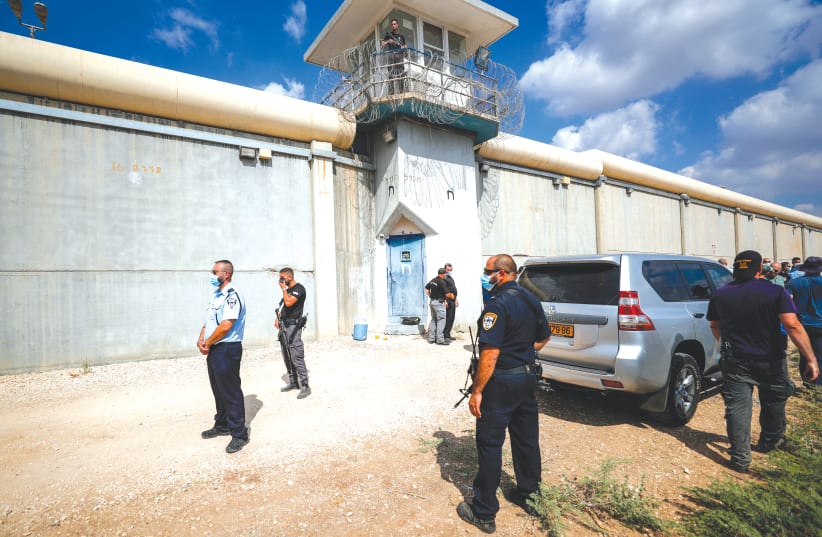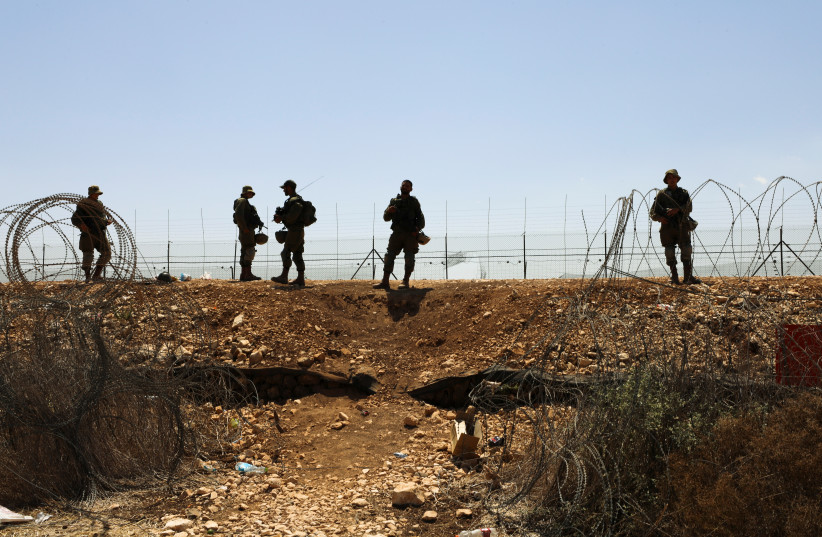It took nearly two weeks, but on Saturday night the last two of the six terrorist escapees from Gilboa prison were arrested. The recapture of all the fugitives was done without loss of life or significantly igniting the West Bank or Gaza. Furthermore, that Israel was able to track down all of the escapees in a relatively short period attests to the country’s tremendous intelligence capabilities.
So all’s well that ends well, right?
Wrong.
The escapees may very well be back behind bars, but their success in tunneling out of one of Israel’s maximum-security prisons exposes deep-rooted and broad deficiencies in Israel’s Prison Services that scream to the high heavens.
A thorough, non-political investigation of how this happened is needed immediately. Such an investigation is needed not to find someone to blame – though those bearing direct responsibility for what happened, from a guard who fell asleep, to the person who put the prison’s structural plans on the internet, to Prison Service Commissioner Katy Perry, need to be held accountable – but rather to ensure that something like this never re-occurs and to root out the rot in the prison system.
This breakout exposed systemic problems in the prison system, from how the prisons are built, to the ridiculous degree of freedom and autonomy terrorist inmates have inside, to nepotism and politicization that led to the appointments of inadequately qualified people to top positions. But more than that it also showed the results of years of poor governance.
Perry was only appointed some seven months ago. For two years before that, there was no permanent commissioner, just as – for political reasons – there was no Israeli police chief for the same period under various Benjamin Netanyahu-led governments.
Critical positions such as these need to be filled permanently, not everything can be improvised. The prisons need a full-time supervisor with the authority to deal with endemic problems. The Israeli knack for winging it often leads to humiliating mistakes, as was the case with this prison break; or to tragedy, as was the case earlier this year at Meron where 45 people were trampled to death on Lag B'omer.
While the recapture of the prisoners was an intelligence and security achievement, their escape was an embarrassing security and intelligence failure. What needs to be investigated is how Israel's vaunted security services did not catch wind of an escape that did not just happen because someone left open the prison door, but rather was something that took a significant amount of time to both plan and execute.
The investigators need to look into how the prison was built with “structural flaws” that included a hollow space underneath which allowed the prisoners to reach the facility’s outer wall, how building materials were left under the floor of the cell which was apparently used in the escape, and why jamming devices were not in place to block cellular phone coverage.
Prime Minister Naftali Bennett issued a statement after the last of the escapees was arrested praising the security forces for “an impressive, sophisticated and quick operation.” He said that “What went wrong can be repaired.” He is right, but first, a thorough look at what went wrong is needed – and that look can not deal only with the details of this particular escape.
An investigation needs to examine everything: how the Israel Prisons Services is run, the quality of those filling its ranks, the criteria for promotion, its budget, and an ingrained culture of whitewashing mistakes.
Furthermore, the investigation needs to focus on the degree of autonomy the security prisoners have inside the prison walls, and a culture of granting privileges to terrorists to buy “quiet” and “calm.”
Three years ago, then Public Security Minister Gilad Erdan appointed a committee to look at the situation in the prisons. The committee issued several recommendations, including banning cell phones from security wings, not letting the prisoners cook for themselves, and not housing the prisoners according to their organizational affiliation.
Nothing came of those recommendations.
That must not happen again. The lessons of this mishap need to be learned swiftly, and the recommendations that will be made need to be heeded and this time actually implemented.

